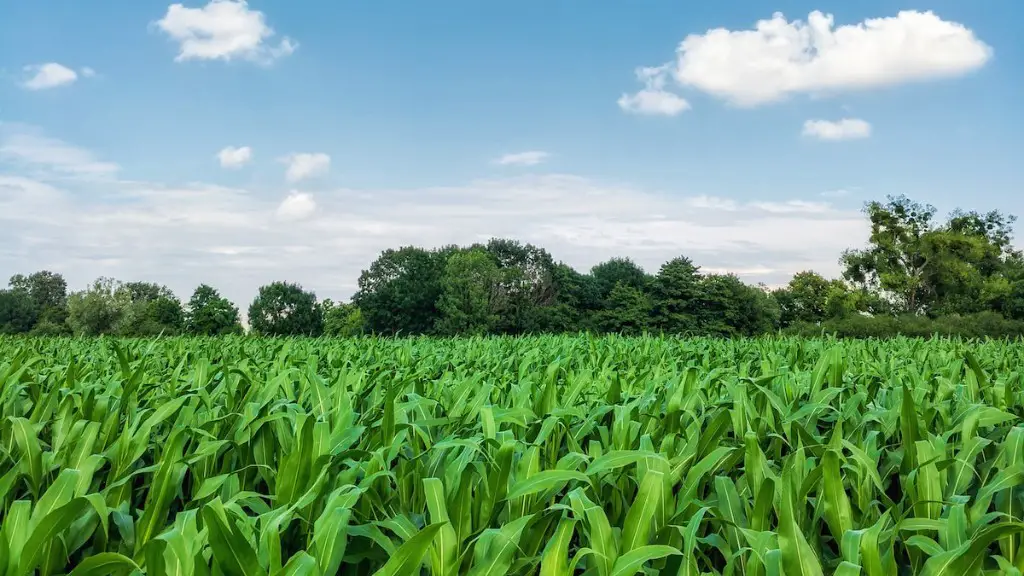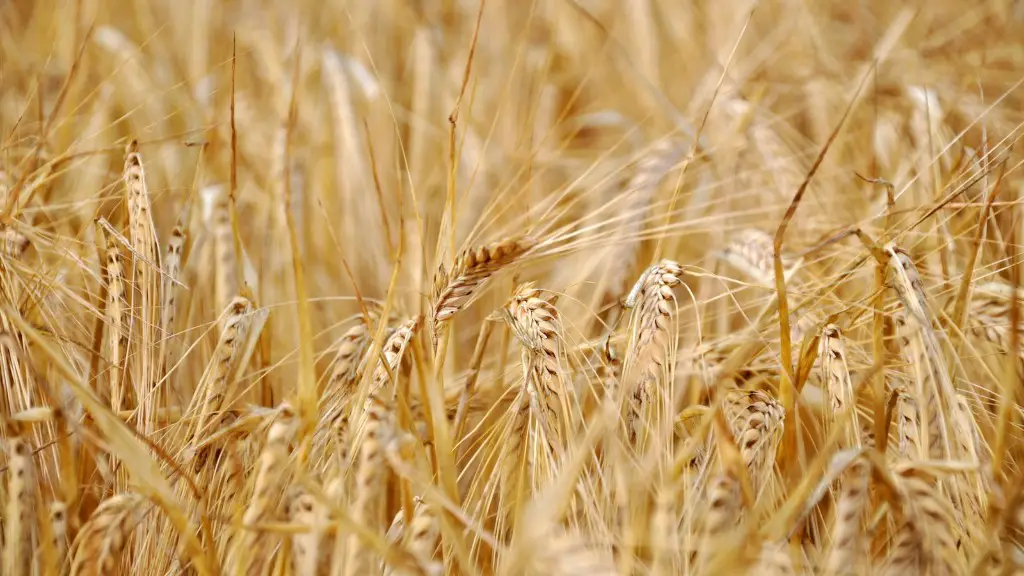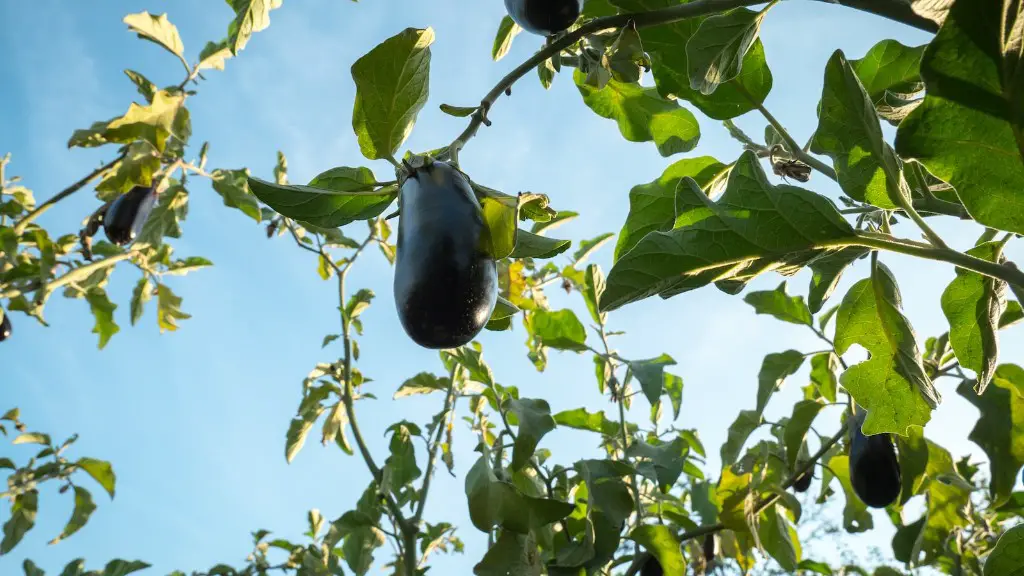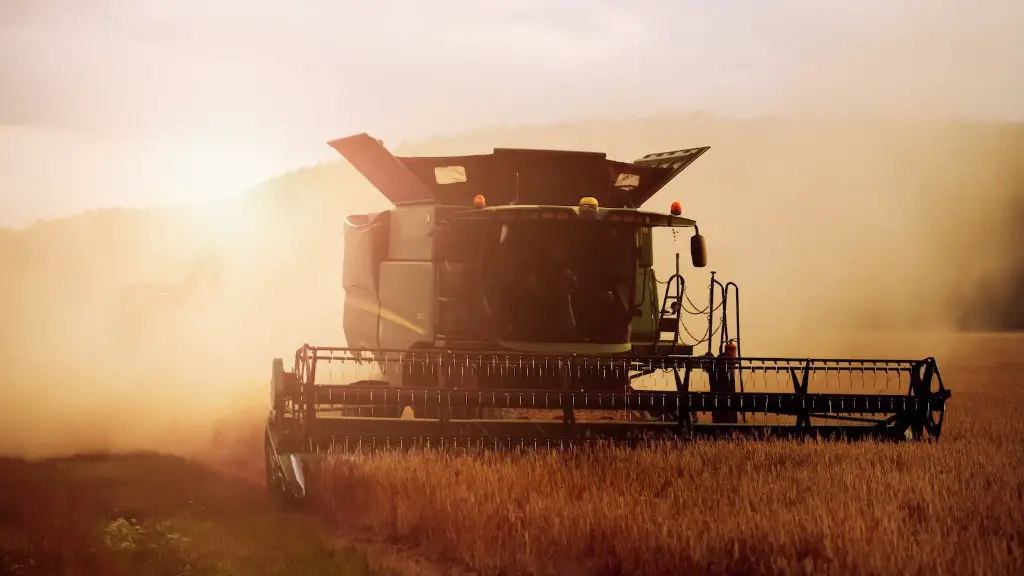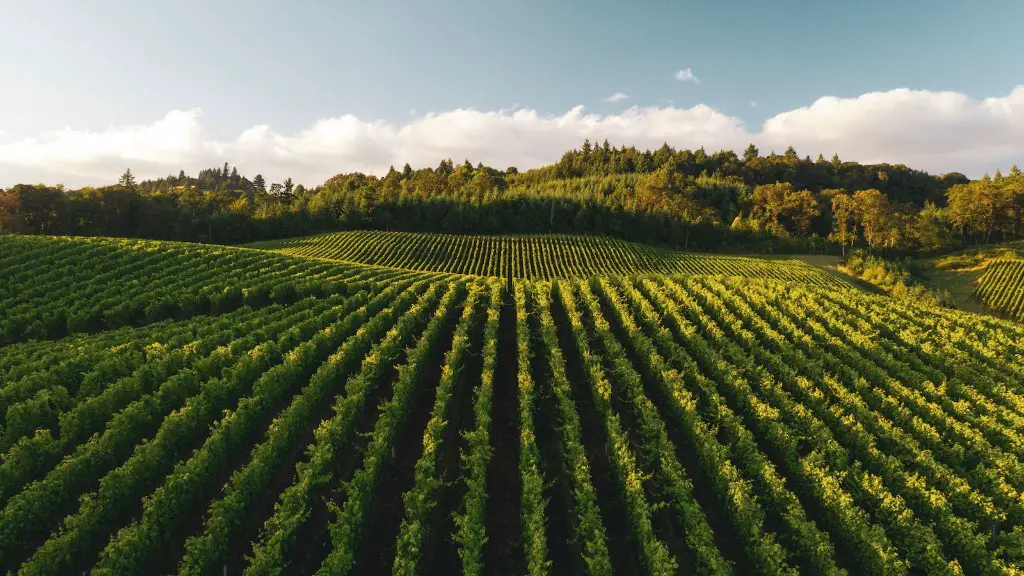The Department of Agriculture is an integral part of the U.S. government. There is a wide range of responsibilities and regulatory powers associated with the Department, and both farmers and consumers benefit from its work. From farm support and environmental stewardship to food safety and nutrition, the Department of Agriculture plays a vital role in nutrition and health as well as in sustaining our agricultural industry.
The Department provides important resources for farmers, including loan and conservation programs, technical assistance, marketing support, crop insurance and risk management tools. Furthermore, it monitors the national food supply and works to help farmers find and keep markets for their products. Through these efforts, the Department helps stabilize food production and availability for both American farmers and consumers.
The Department of Agriculture also promotes research, enforces food safety regulations, and disseminates vital data and research to the public. Agencies within the Department, such as the Agricultural Research Service, work diligently to develop new technologies and practices to improve agricultural production and environmental stewardship. As a result, farmers and producers are able to produce enough food to meet the nation’s growing needs at a reasonable cost.
In addition to supporting farmers and enhancing food safety, the Department of Agriculture also focuses on helping people, households, and communities all across the country. It provides nutrition assistance programs as well as tools for connecting families to healthier and more balanced meals. Similarly, the Department helps combat food insecurity and hunger through programs such as the Supplemental Nutrition Assistance Program (SNAP).
The Department of Agriculture is devoted to the promotion of health and nutrition, while at the same time maintaining the profitability of U.S. farms and ranches. Its programs and efforts touch every aspect of food production and consumption, which makes the Department an invaluable part of the U.S. government. Without the Department of Agriculture, current practices of sustainable agriculture, understanding nutrition and dietary needs, and ensuring food safety would remain unknown.
Farm Support Programs and Services
The Department of Agriculture provides farmers with crucial resources and services. Its farm support programs help farmers remain productive and profitable in the face of changing and challenging market conditions. USDA programs, such as crop insurance and loan guarantees, help cushion farmers and their operations against financial losses. Moreover, programs such as the Conservation Reserves Program and Environmental Quality Incentives Program offer farmland and conservation protection, as well as incentives for farmers to implement practices essential for livestock and soil health.
The Department also provides technical assistance and works with farmers to help them access markets for their products. In addition, it promotes research in agriculture and collaborates with academic institutions and industry partners to design tools and practices that are beneficial to producers and consumers alike.
The heightened awareness of sustainable agriculture has seen an increase in the availability of programs designed to benefit the environment, wildlife and conserve natural resources. Such environmental stewardship programs include the Conservation Stewardship Program, the Regional Conservation Partnership Program, the Conservation Technical Assistance Program, and the Working Lands for Wildlife Program. These programs provide conservation education, technical guidance and financial support to farmers and producers.
The Department also provides disaster assistance programs, such as the Livestock Indemnity Program, which compensates farmers and ranchers for losses due to extreme weather or conditions, and the Emergency Assistance for Livestock, Honeybees and Farm-Raised Fish Program, which helps producers replace livestock, honeybees, farm-raised fish, or plants which have been damaged or destroyed due to natural disasters or disease.
The Farm Service Agency (FSA) is the main agency tasked with implementing eligibility requirements, providing support services and issuing payments to eligible producers under USDA’s farm support programs. As a result, the mission of the FSA is to increase the income of farmers, ranchers and rural communities through emergency and directed farm support programs.
Nutrition and Food Safety Programs
The Department of Agriculture is also responsible for ensuring the safety of the nation’s food supply through its food safety program. The Food Safety and Inspection Service (FSIS) is the agency of the United States Department of Agriculture (USDA) responsible for ensuring that the nation’s commercial supply of meat, poultry, and egg products is safe and wholesome.FSIS sets standards and approaches related to hygiene, production, labeling, testing, and health and safety requirements that all meat, poultry, and egg products exported to the United States must meet.
Similarly, the Veterinary Services department works on improving animal health and eliminating diseases in livestock, poultry, and aquaculture. This includes the development and implementation of diagnostic techniques and methods, the establishment and maintenance of clinical laboratories, and the training of personnel in animal health techniques.
Nutrition is another significant part of the Department of Agriculture’s mission. The USDA’s Center for Nutrition Policy and Promotion (CNPP) works to improve nutrition and health in the United States through research and education. For instance, CNPP works to understand the dietary patterns of Americans and educates the public on how to make dietary choices that fit the Dietary Guidelines for Americans and MyPlate. The agency created ChooseMyPlate, an online resource to help people create personalized and healthy eating plans, which is a great resource for both consumers and dieticians.
Moreover, the USDA works with organizations and academics to create education programs targeted at young adults. These programs attempt to motivate adults to form healthier eating and lifestyle habits. Through these initiatives, it hopes to reduce childhood hunger and chronic disease, while educating adults on how to build and maintain healthy dietary choices.
Nutrition Assistance Services
Nutrition assistance is another essential component of USDA’s work. This includes programs such as the Supplemental Nutrition Assistance Program (SNAP), the Special Supplemental Nutrition Program for Women, Infants, and Children (WIC), and the National School Lunch Program (NSLP). These programs help households and children in need access affordable and nutritional foods.
The Supplemental Nutrition Assistance Program (SNAP) is the largest nutrition assistance program in the United States. It provides low-income individuals and families with electronic benefits cards, which they can use to purchase food. SNAP also provides nutrition education and employment and training services to eligible individuals.
The Special Supplemental Nutrition Program for Women, Infants, and Children (WIC) is another key nutritional assistance program, providing nutritional supplements and health care referrals to needy pregnant and nursing women, as well as infants and children under the age of five. WIC also provides nutrition education, breastfeeding support and other services to those who are eligible.
The National School Lunch Program (NSLP) helps low-income children receive nutritious lunches to help them perform better in school. This program serves more than 31 million children each day in more than 100,000 public and nonprofit schools across the country. The NSLP also provides cash to local schools to buy food and pay for administrative costs, thus helping to ensure meals are nutritious and of the highest quality.
Economic Development and Rural Opportunities
USDA works to facilitate economic development and opportunities in rural communities. Through its Rural Development initiative, it provides communities the necessary tools and resources to develop, attract, and retain businesses, as well as create jobs. The agency works to ensure economic opportunities are available for interested businesses and to increase prosperity for rural individuals and families. It does this through several programs, such as the Rural Business Enterprise Grants Program, the Rural Community Development Initiative, and the Rural Microentrepreneur Assistance Program.
The Rural Business Enterprise Grants Program provides grants to rural communities to stimulate business development and job creation. Similarly, the Rural Community Development Initiative provides grants to assist rural communities with housing development and infrastructure improvement. This includes grants to local organizations for housing counseling and to provide technical assistance for housing and community facility improvements.
The Rural Microentrepreneur Assistance Program provides technical assistance, training, and microloans to small, rural businesses to help them start, grow and create jobs. This program provides economic opportunities for rural entrepreneurs through partnerships with local non-profits and lenders. With sufficient resources, businesses can successfully launch and manage sustainable operations.
In addition, the USDA operates the Rural Housing Service (RHS), which works with rural communities to offer a variety of housing resources designed to improve quality of life in rural areas. This includes programs such as the Enhanced Collateral Guarantee Loan Program, which provides assistance to lenders providing guaranteed loan assistance to rural businesses. Similarly, the RHS provides assistance to help low-income individuals and families secure and afford permanent housing.
Regulatory Powers and Enforcement
The Department of Agriculture has the authority to enforce existing laws, regulations and policies nationally. This includes the ability to investigate cases of fraud and oppression in the agricultural sector, and to take legal action against proven violators. The Department has established several agencies to assist with this oversight, including the Office of the Agriculture Inspector General, the Agriculture Marketing Service, and the Animal and Plant Health Inspection Service.
The Office of the Agriculture Inspector General is responsible for investigating cases of fraud, waste and abuse of USDA funds. It also evaluates the effectiveness of programs and operations in order to improve their performance. The Agriculture Marketing Service meanwhile helps ensure fair marketing practices and verifies the accuracy and quality of the commodities purchased with USDA funds.
The Animal and Plant Health Inspection Service (APHIS), meanwhile, is the agency responsible for protecting and enhancing the natural environment by enforcing animal and plant health regulations. It works to protect the public and consumers from the risks involved in the importation, exportation, and interstate movement of agricultural products. APHIS also works to protect endangered species and to protect the nation’s food supply from pests and diseases.
The USDA also controls the national egg market by setting capital standards, requiring sanitary facilities, and overseeing the production and distribution of eggs. In addition, the National Organic Program (NOP) within the Department certifies organic products, ensuring that food and fiber products labeled as “organic” meet USDA-defined standards.
Conclusion
In conclusion, the Department of Agriculture is essential to the health and well-being of the nation. It provides farmers with resources and services to remain profitable, oversees nutrition and food safety, and assists low-income individuals and families in need with access to nutritious foods. Additionally, it works to ensure economic development and opportunities are available in rural communities, while also providing regulatory enforcement to protect consumers and the nation’s food supply. Without the Department of Agriculture, our nation’s farms, food security and nutrition would be in jeopardy.
